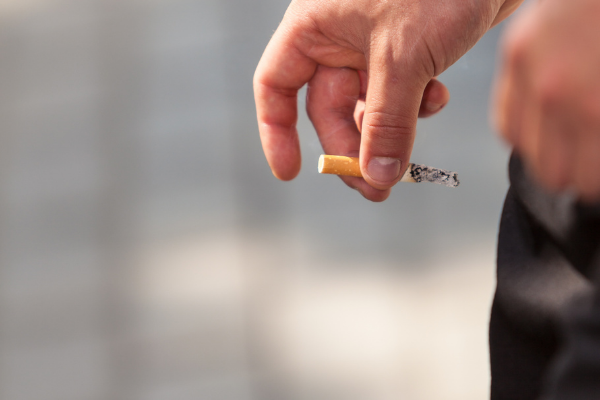While the deadly impact of smoking on health is well known, fewer people are aware of the industry's destructive tobacco cultivation methods.
The World Health Organisation (WHO) has shared new statistics on 31 May, detailing the impact of the global tobacco industry on the environment and health of ordinary citizens.
Besides killing more than 8 million people every year, including over 20,000 Belgians, the industry is also responsible for the yearly destruction of 600 million trees and 200,000 hectares of land, using 22 billion tonnes of water, and releasing 84 million tonnes of CO2.
The vast majority of tobacco is grown in low-and-middle-income countries. In these regions, water needs are more acute as many desperately need resources to grow more food. The tobacco industry saps away this water, and clears vast swathes of forest in order to grow tobacco.
In the WHO’s “Tobacco: Poisoning our plant” report, the organisation highlighted the scale of the tobacco industry’s CO2 footprint compared to other major polluters. Surprisingly, processing and transporting tobacco is equivalent to 20% of the CO2 produced by commercial airlines each year.
Not only is the cultivation of tobacco harmful to the environment, so too is their effect on the planet once that tobacco products have been confused.
Related News
- Belgian co-production "Fumer fait tousser" presented in Cannes
- Vapers more likely to get asthma
- Trendy and colourful: Nicotine pouches entice young Belgians
Cigarettes, smokeless tobacco sticks, e-cigarettes, and other tobacco products have led to a massive global build up of plastics pollution. Cigarette filters are known to contain microplastics, which are known to be the second largest source of plastic pollution worldwide.
“Tobacco products are the most littered item on the planet, containing over 7000 toxic chemicals, which leech into our environment when discarded,” said Dr Ruediger Krech, Director of Health Promotion at the WHO.
Each year, China spends $2.6 billion on cleaning up cigarette butts from its streets. In India, this figure is $766 million. Both Brazil and Germany spend roughly $200 million.
“Roughly 4.5 trillion cigarette filters pollute our oceans, rivers, city sidewalks, parks, soil, and beaches every year,” the doctor stated.
Some countries, the WHO notes, have now started to get tough on the tobacco industry. France, Spain, and some areas of California have begun to hold the industry to account on pollution. These regions operate on a “Polluter Pays Principle”, meaning that tobacco companies are responsible for clearing up the pollution they create.
“WHO urges countries and cities to follow this example, as well as give support to tobacco farmers to switch to sustainable crops, implement strong tobacco taxes, and offer support services to help people quit tobacco,” the WHO concludes.

